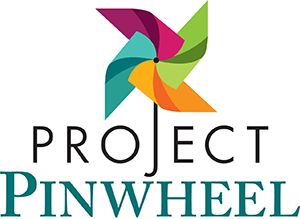Talk it Out
Talking to your children about healthy sexuality and personal safety are a key part to preventing sexual abuse. In fact, research shows that children with the following “protective” foundation may be less likely to be targeted by abusers:
- Open, honest communication with their parents about a variety of topics
- Positive feelings about their bodies and sexuality
- Correct information
- A sense of control over decisions about their body
Talking Points
There are messages we can share with children about their bodies and their rights that will help them feel more confident and that may reduce their risk of abuse. You can start sharing these points as early as age three.
-
-
- Teach children the actual names of their body parts (penis, vagina, buttocks, breasts). Explain that these parts are private and have special rules. They can easily remember which parts are private because they are the parts of the body covered by a swim suit.
- Help them understand that each person is in charge of their own body and no one is allowed to touch their body or make them touch another person’s body.
- Teach children safety rules about private parts of their bodies. These rules should cover touching, looking, and taking/sharing videos or photos. Give examples and exceptions (health or safety reasons).
- Talk about boundaries and how to say NO if something feels scary, uncomfortable or icky. Give examples that cover both affection (physical) and teasing (emotional). Respect their boundaries (like if they don’t want to kiss a relative).
- Explain that everyone deserves privacy while dressing, bathing, or doing other personal activities.
- Teach children that respect doesn’t mean blind obedience to adults and those in authority…especially when it comes to the touching rules.
- Help children identify adults they trust that they can turn to for help is something happens. Remind them they won’t get in trouble.
- Tell children that if someone touches her/him to tell and keep telling until the touch stops.
- Surprises are fun and okay, secrets aren’t. In particular, teach children that secrets about touching and pictures are never okay, not matter who is asking. Those secrets need to be shared with a trusted adult. Click here for an online reading of a book called Some Secrets.
- Explain that sometimes a person the child knows and loves will hurt them and it is still okay to tell.
- Make sure they can label and trust their feelings, especially the “ut oh” feeling.
-
Some of these points may make you uncomfortable or be difficult to discuss. It is easier if you set a standard of open conversation.
The “Sex Talk”
Many parents wonder when they should talk to their children about sex and sexuality. Talking about sexuality and sexual abuse should be routine conversations instead of a one-time event or big discussion. The best approach is to start talking early on in very general terms and then add more detailed information as the child gets older. Remember to always use an open, relaxed and direct tone. Take advantage of teachable moments (ie: media, current events) to naturally introduce the topic and reinforce the talking points.
Click HERE for ideas of what concepts to teach at each age.
In terms of questions, if they have the maturity to ask a question, they are ready and deserve an answer. If you really need a number, many experts in the field hold to the logic Eight is Great. Hear more in the video below.
As your children mature, it is important to continue the conversation, adding more information and details as they can handle it. These conversations should naturally progress into talking about teens about having sex. For tips on how to talk to teens about sex, click HERE.
Still uneasy? Although talking with your children about sex may feel outside your comfort zone, there are many resources available to help you begin and continue the conversation about sexuality. Build confidence through information by checking out some of the resources on this Parents Reading List for Talking to your Kids about Sex.

